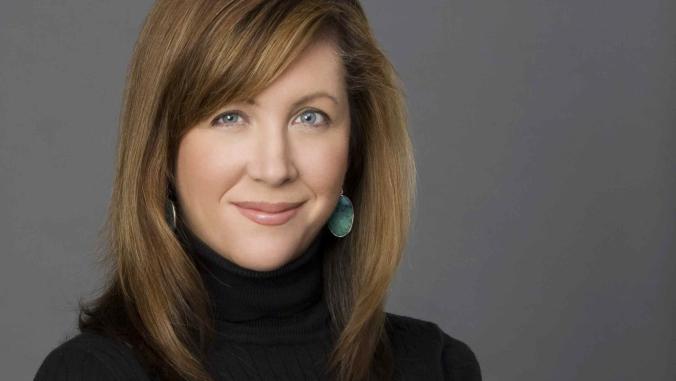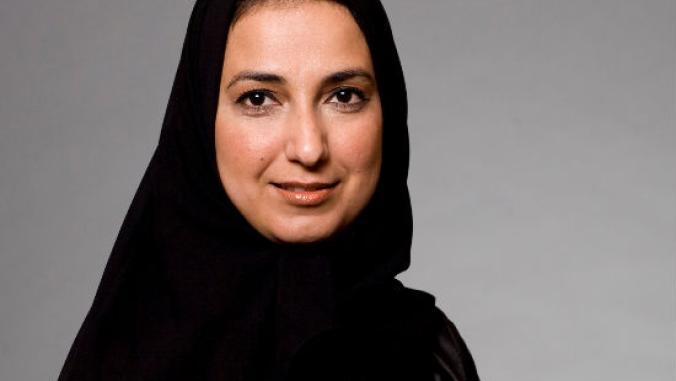How She Leads : Arielle Bertman of Google
<p>Google's renewable energy investment leader discusses what it's like to be responsible for major capital investments at a company that could reshape how the world gets its power.</p>

How She Leads spotlights the career paths of women who have moved into influential roles in sustainable business. Today, Maya Albanese interviews Arielle Bertman, renewable energy investment leader on the Green Business Operations team at Google Inc.
Arielle's effort as part of Google Green has led to a number of investments into large renewable energy projects, which now total over $700 million in committed capital. Most recently, Arielle has led Google's investments in large projects such as Peace Garden Wind, Shepherds Flat, and Alta Wind.
Google is one of the highest valued companies in the world, and invests in a diverse array of technologies, projects, and research related to clean technology. Google knows that energy innovation will benefit GDP, job creation, and energy security and reduce carbon emissions. The company has been carbon neutral since 2007, has launched an initiative to make renewable energy cheaper than coal, and has invested in clean energy companies and projects all over the world.
During this interview, Albanese asks Bertman what it's like to be responsible for significant capital investments at an organization that has the opportunity to successfully scale new clean technologies, which could change the face of our world's energy, climate, and environmental future.
Maya Albanese: Could you please start by explaining your career from graduation to your current role?
 Arielle Bertman: I graduated with a degree in Systems and Information Engineering and decided to pursue a role in business after coming from a more technical background. After interning at Bain & Company, I accepted a full-time offer to do traditional strategy consulting there, which allowed me to develop a great skills set and work with motivating and inspiring people. But I missed the tech side, so I eventually applied for a role on the Business Operations and Strategy team at Google, the internal consulting arm of the company. This is a small team that works on cross-functional projects sponsored by our CEO and executive management team.
Arielle Bertman: I graduated with a degree in Systems and Information Engineering and decided to pursue a role in business after coming from a more technical background. After interning at Bain & Company, I accepted a full-time offer to do traditional strategy consulting there, which allowed me to develop a great skills set and work with motivating and inspiring people. But I missed the tech side, so I eventually applied for a role on the Business Operations and Strategy team at Google, the internal consulting arm of the company. This is a small team that works on cross-functional projects sponsored by our CEO and executive management team.
MA: And how did you successfully move into the Green arm of the team?
AB: I had an incredible amount of senior exposure and had already created a strong reputation for myself within the company. Renewable energy had always been a passion of mine, and this interest aligned with a position that came open on the green team. I pitched the desire to get involved in the green operations team. I think my greatest takeaway from this is: Never be afraid to ask for something.
MA: I'd like to highlight that you are one of the younger candidates I have interviewed so far, because it means you are a role model to other professionals starting careers in sustainability.
AB: Keep in mind that everything at Google is on a compressed scale. As a team member of 4 years, I am one of the longest tenured members. We are a young and agile company that values and promotes strong performers.
MA: Beyond Google's culture, what advice would you give other young professionals aspiring to similar roles at large organizations?
AB: Find something you love and do it well. Make key relationships within your organization. Having a technical background is also a great way to start. You must have a lot of passion and perseverance. We now have had a ton of internal support and enthusiasm around green initiatives, but this wasn't automatic.
MA: Was there a particular event or part of your life that led you to want to work for environmental change in business and technology?
AB: It's a confluence of a lot of things, but probably the most notable is the fact that I attended an outdoorsy summer camp for 8 years as a kid. There, I developed a true appreciation of environmental conservation by being exposed to life in nature and the "leave no trace" mentality. It was also there at age 10 that I decided to become a vegetarian. I remain a strong supporter of summer camps, considering that I can still maintain that connectedness to nature from that experience 20+ years later!
MA: What are the most significant components of your job: investment decisions, internal operations, stakeholder engagement, etc?
AB: The Green Business Operations works on all of the above. There are actually 3 tenets of the team: 1. Greening our offices, 2. Greening Googlers, and 3. Greening our capital. I am primarily involved on the investment side and particularly focused on wind energy, and starting to work more on geothermal opportunities. Originally, I was handling all investments, but then we brought on another associate. In order to develop more internal expertise, we split up the technologies; I took on wind and he took solar.
MA: Google has several arms that work with green initiatives. Could you clarify the differing roles between Google Inc, Google.org, Google Ventures…?
AB: The Green Operations team is part of Google Inc and works on clean technology project financing using Google's treasury cash. We are involved in on-site energy generation, such as the 1.6 MW solar panel installation on our headquarters, which was the largest on any corporation when constructed. The arm of Google that invests in early stage technology companies is Google Ventures.
We work closely with Google.org when it makes sense. This non-profit arm still exists and was the origin of several green initiatives at Google. It was very successful at kick starting them, but now they've spread to all areas of the company.
MA: Anyone working in clean tech knows that a brilliant idea can't save the planet unless it is executed at scale. How do you feel about holding an important role at a company that has perhaps the most potential to be this scaling agent?
AB: It is absolutely exciting, and I feel so fortunate to be in a place that has the resources to impact what technologies are going to grow. In addition to being financially sound, the other key criterion for us to invest is the transformative nature of a project. The projects come in many shapes and sizes, but the overall question is always: Can we help deploy additional renewable energy and support new technologies that bring more capital in to this market? We truly believe that these investments make business sense.
MA: What are you most proud of accomplishing so far in this role?
AB: I am most proud of being involved in our very first clean tech project: two wind farms in North Dakota. Going from that experience, I now have lead 2 + other projects from inception to full execution on my own. The Atlantic Wind Connection (http://atlanticwindconnection.com/) is a project especially important to note for its transformative nature. It's a high-voltage, under-sea network of transmission cables that has the potential to transform the East Coast offshore wind industry by connecting up to 7,000 MW of offshore wind power.
MA: Could you describe the process of making an investment in a clean tech project on a more granular level?
AB: I am in charge of the pipeline development of projects, which are generally 20+ year investments. I identify an idea or opportunity and lead it all the way through execution, working with several internal teams like finance and legal. We have a typical process in place for pitching, getting approval, and doing due diligence and then executing the investment. It is a lot of paper work, and I have a new appreciation for lawyers! Everyone on our team sees each project as an intellectual challenge to learn about a new industry, and it's been great exposure to all the different components that go into a big project decision.
MA: How do you communicate the quantitative and qualitative side of your green investments to the public?
AB: We have a communications team that is assigned to Google Green efforts, and we work really closely with them on the blog posts about our investments and projects (http://googleblog.blogspot.com/search/label/green). We're constantly re-evaluating the best way to communicate that and we're very supportive of creating consistency and want to avoid any form of greenwashing. Our goal is to disclose as much as we can to set a standard and encourage companies to do so too.
MA: What role does regulatory concern play in Google's green energy targets?
AB: The fact is that these are financially attractive investments, but you also need sound policy to encourage it. The way that policy is set up now is not conducive to supporting companies or consumers in making these types of investments. I think it has to be a combination of public and private initiatives.
MA: In an ideal scenario 20 years from now, what milestones will we have reached in clean technology with Google's help?
AB: We are just one company, but the hope is that we can inspire other companies to think about ways they too can enter the renewable energy investment space through their own projects. Many other corporations have already followed our path, and I'd like to see that every major company has 20 years from now.





